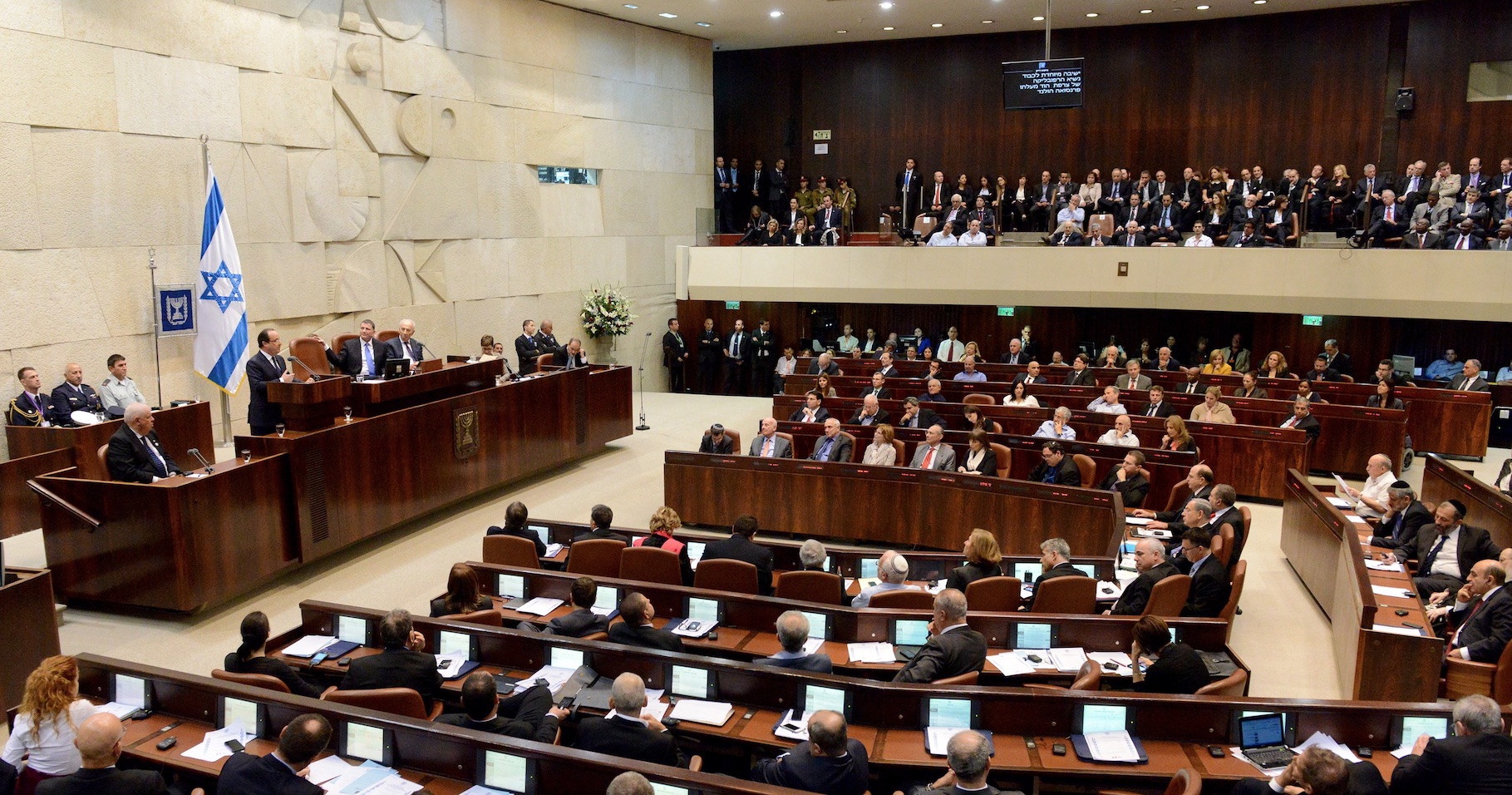Giulia Daniele, researcher at CEI-IUL, comments on the meaning and consequences of Israel’s recently approved Nation-State Law.
Meaning and consequences of the new law
After a overnight long and controversial debate the Israeli Parliament (Knesset) approved the so-called “Jewish Nation-State” law on July 19th 2018. Becoming one of the Basic Laws of the state of Israel, it declares Israel to be the Jewish nation-state, namely the national home of the Jewish people, that will lead Israel’s legal system.
With the final version of the law, which has been under discussion since its first proposal in 2011 and passed through many amendments, now Israel is a state only for Jews. It means that: a) the right to exercise national self-determination is unique to the Jewish people, b) Jerusalem is the complete and united capital of Israel, c) the development of new settlements in the occupied Palestinian territories represents a national value, d) the state’s language is Hebrew (stripping Arabic of its status of official language in the country after 70 years, 2 months and 5 days).
This represents a clear declaration that has just paved the way for additional and more severe discriminations against non-Jewish people, and in particular against the indigenous Palestinians, who are the 20 percent of the Israeli population. In a way, this further step has aimed at legalising what has already been there for decades and openly recognising what Israel has always tried to hide, that is its policy to grant Israeli Jewish citizens’ privileges at the expenses of the Palestinian people.
Recognising Israel as an apartheid state
After 70 years (from the time of the establishment of the state of Israel and the Nakba – “the Palestinian Catastrophe” in 1948) Israel can be eventually defined as an apartheid state. Although the apartheid status related to the Israeli context has been often disputed and, in many cases, also rejected, this new law clearly states how the Israeli state belongs exclusively to the Jewish people, and, as a result, Palestinian citizens of Israel are not more welcomed in their own ancestral homeland. Whether, on the one hand, Israel has promulgated dozens of racist laws as well as has never enforced UN Resolutions throughout its history, on the other hand the nation-state law has pushed Israel’s mask of democracy, better known as “the only democracy in the Middle East”, down.
As declared by one of the foremost Israeli journalists, Gideon Levy: “the nation-state law marked out the path Israel is treading, defining in words, in law, what was known already: Israel is an apartheid state, from now on not just in the occupied territories, but in the entire country between the Jordan River and the Mediterranean Sea”.
Ongoing criticism from within and outside the country
A significant wave of internal and international criticism has been led against the law, especially denouncing it as part of an ongoing process that is destroying democracy and freedom inside Israel. Both Palestinian political leaders and civil society organisations along with common people have stressed the fact that, even though nothing will change in the country since such a status of apartheid has always been a reality, the new law will reinforce racist policies based on the principle of ethnic superiority of the Israeli Jewish majority.
A few joint Palestinian-Jewish initiatives protesting against the law and calling for its cancellation are taking place at present, such as the one in which thousands of Israelis, both Jews and Palestinians, took part in “the world’s largest Arabic lesson” that was organised in central Tel Aviv by joint Palestinian-Jewish and bilingual organisations.
In parallel to this, the international community has immediately expressed shock and concern regarding the future of the state of Israel. The European Union, and in particular the spokeswoman for the EU foreign affairs chief, Federica Mogherini, underlined that “we are concerned, we have expressed this concern and we will continue to engage with Israeli authorities in this context”.
However, on the ground, a clear form of apartheid is worsening everyday life of non-Jewish people by deeper forms of discrimination and violation of human rights.
The opinions expressed in this blog are solely the authors’ point of view and do not bind the Center for International Studies, its Director or any other researcher. The Israeli Parliament (Knesset). Photo by Rafael Nir on Unsplash (cropped).
